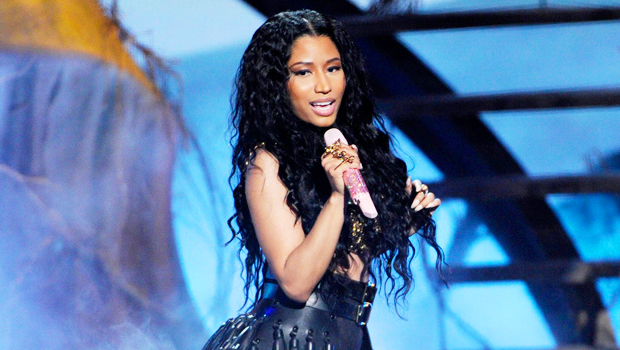Nicki Minaj & More Of The Greatest Female Rappers Who Rocked The Industry

It’s Women’s History Month, and today, we’re celebrating female rappers that changed the genre, plus a few rising stars you need to know about!
Rap has never been just a man’s game. From its humble origins in a Bronx apartment in 1973 to today’s hip-hop heavyweights like Nicki Minaj, Cardi B, and Megan Thee Stallion, rap has been driven by powerful female voices. In honor of s Women’s History Month, HollywoodLife is looking at some of the women who have helped shape hip-hop into the dominant music genre that it is today.
Even though women were there from hip-hop’s creation, female rappers have fought for their place in the limelight and their fair share of the respect. It’s a shame since if it weren’t for Cindy Campbell, there wouldn’t be hip-hop. “When we talk about Hip Hop, we know the story of Kool Herc,” hip-hop journalist and historian Davey D said in 2010,” but there is always a woman that stands alongside and usually behind holding up the man that is taking credit, or getting bows and the accolades and we wanted to talk to the first woman of Hip Hop Cindy Campbell.” During the summer of 1973, young Cindy Campbell decided to throw a party at 1520 Sedgwick Avenue to raise some money. She hired her brother, Kool Herc, to DJ. This party, on Aug. 11, 1973, is considered the genesis of hip-hop, and it wouldn’t have happened without Cindy.
As the scene was starting to pick up in New York City, female emcees emerged alongside their male counterparts. Sharon Green, aka MC Sha-Rock, is often credited as “the first female rapper.” As a member of the hip-hop crew Funky Four Plus One More, MC Sha-Rock “straight-up B-girl, carrying records to the parties, and my presence elevated from there,” she told the Huffington Post in 2017. “I just want everyone to know my official title: I am the First Female of Hip-Hop Culture.” If one has any doubts, tune into the Feb. 14, 1981 episode of Saturday Night Live.
“We appeared on Saturday Night Live,” said MC Sha-Rock, “hosted by Deborah Harry from the band Blondie. At the time, we were on The Sugar Hill Records label and hanging out downtown at the punk rock music clubs. Fab-Five Freddy brought Deborah Harry to hear our show, and she liked us. She also liked our label mates, Grandmaster Flash and the Furious Five, but she chose our group because we had a female, and she wanted the world to experience this.”
Since then, the world has experienced what women could bring to hip-hop. One of the first major hip-hop beef came thanks to Roxanne Shanté. After rap group UTFO released “Roxanne Roxanne,” a song about a woman who refuted their romantic advances, 14-year-old Lolita Shanté Gooden changed her name, dropped “Roxanne’s Revenge,” and became a hit. A series of answer records, dubbed “The Roxanne Wars,” followed, kicking off one of the genre’s first major musical feuds.
As hip-hop evolved, so did the women involved in the genre. Groundbreaking acts like Salt-N-Peppa, Queen Latifah, and MC Lyte (the first solo female rapper to release a major label full-length album) helped hip-hop flourish in the 1980s and into the 1990s. That latter decade saw names like Foxy Brown, Lil Kim, Missy Elliott, Da Brat, and TLC’s Lisa “Left Eye” Lopes flex their hip-hop muscles while carving out their own niche in the male-dominated rap landscape.
At the turn of the century, women struggled to find love on the charts, but some stars – like Nicki, Cardi, Young M.A., and more – would not be denied. In 2021, with stars like Megan Thee Stallion, Doja Cat, and Flo Milli poised to take over, women continue to reign supreme when it comes to hip-hop.
Click through the gallery to see pics of everyone mentioned here. Happy Women’s History Month! Oh, and don’t forget to check out our Women’s History Month playlist.